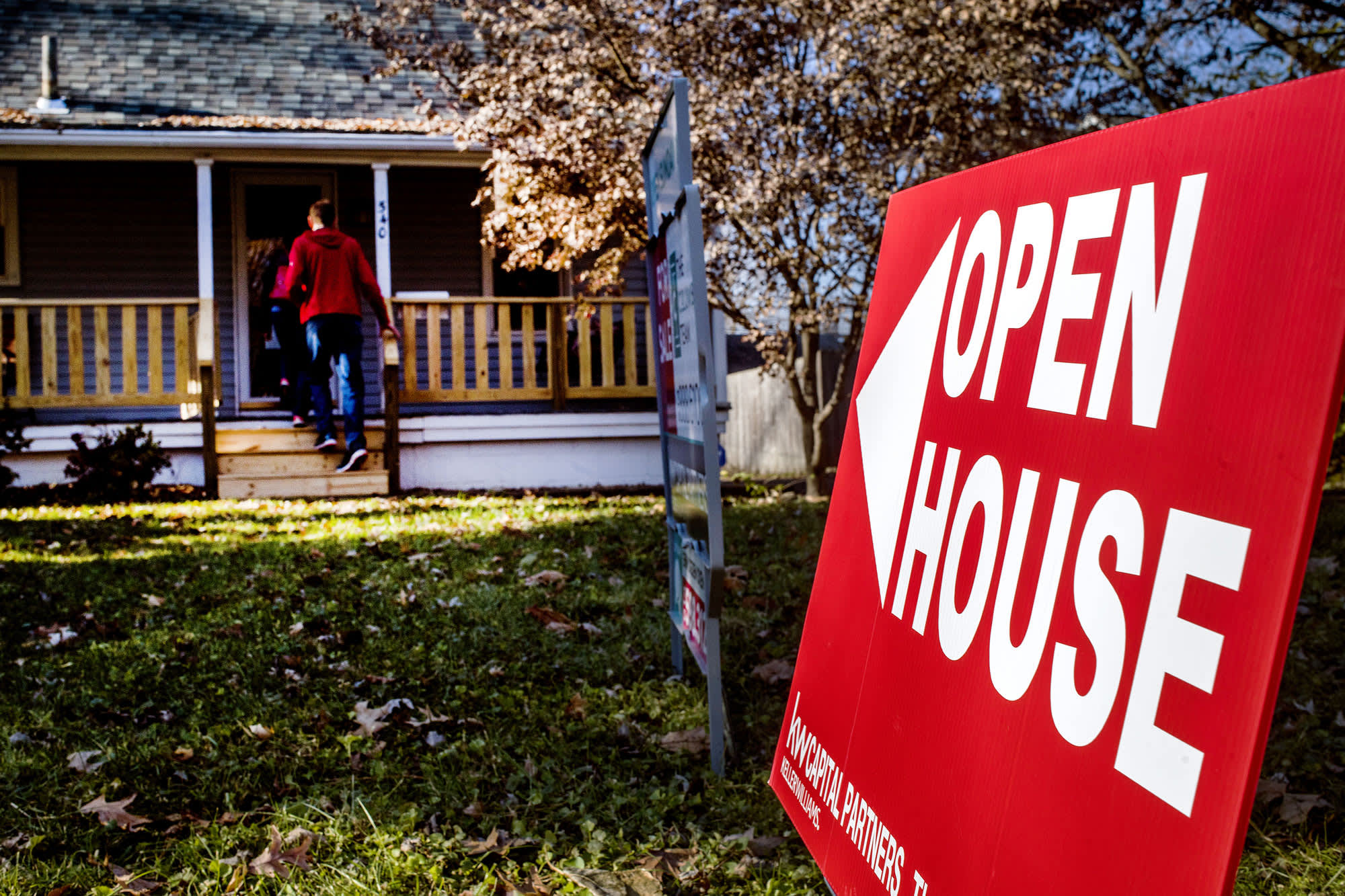An ‘Open House’ sign is displayed as potential home buyers arrive at a property for sale in Columbus, Ohio.
Ty Wright | Bloomberg | Getty Images
The spring housing market was on its way to becoming the strongest in over a decade, but it will likely turn sharply lower, as the economy shuts down in the face of the coronavirus.
Sales of existing homes in February jumped 6.5% month-to-month to a seasonally adjusted annualized rate of 5.77 million units, according to the National Association of Realtors. That is the highest monthly pace in 13 years. Sales were up 7.2% year over year.
The Northeast was the only region to see a decline, with sales down 4.1%, but in the West, where prices are highest, sales soared nearly 19%.
“I would attribute that to the incredibly low mortgage rates and the steady release of a sizable pent-up housing demand that was built over recent years,” wrote Lawrence Yun, chief economist for the NAR in a release.
The closed sales numbers represent contracts signed in December and January, so well before the U.S. felt any economic impacts from the pandemic. Yun admitted this read on the market is, “in the rear view mirror,” but said he could not put a number on how low he expected sales to go over the next few months.
One estimate from Capital Economics is that sales could drop 35% annually. Yun said, “that’s possible,” but added that he expects the sales to be pushed back to the fall, not gone forever.
The market is still plagued by low supply, which worsened in February.The inventory of homes for sale fell 9.8% annually to 1.47 million. That represents a 3.1 month-supply, which is incredibly tight.
Low supply pushed the median home price in February up 8% annually to $270,100. The upper end of the market saw the biggest sales growth – the lower end saw the biggest drop, because supply is leanest on the low end. It may also be that so many homes are now being pushed into higher price categories,.
Realtors are reporting a decline in buyer traffic as well as sellers de-listing their properties because they are either concerned about people in their homes or worried that they will be selling into a down market. Agents are now pushing virtual open houses.
“Data in coming months won’t be pretty and the nice run-up in sales we’ve been enjoying over the past year has been indefinitely paused until this crisis ends,” said Matthew Speakman, an economist with Zillow.
There is also concern among real estate agents about appraisals and closings which are usually done in person. Title companies are reporting that they are trying to do closings online, but some states do not allow electronic notarization.
During its quarterly earnings call Thursday, Stuart Miller, chairman of Lennar Corporation said the homebuilder was experimenting with drive-through closings.
Given how strong housing demand has been, some are not convinced of a major collapse in the housing market. Yun said he does not believe home sales will fall, because they are so strong now. Others are hoping consumers will get the help they need and start participating in the market again.
“The Fed and the government are moving quickly to address the expected economic disruption with fiscal and monetary stimulus,” said Danielle Hale, chief economist at realtor.com. “In two weeks March housing inventory data may be the first glimpse into whether these measures are boosting confidence enough for sellers to still put their homes up for sale as they traditionally do in spring.”
Still, unpredictability is the only certainty for now.
”These figures show that housing was on a positive trajectory, but the coronavirus has undoubtedly slowed buyer traffic and it is difficult to predict what short-term effects the pandemic will have on future sales,” Yun said.

